Barbara Loden directed one film in her life. After having won a Tony award for Arthur Miller’s After the Fall, the actress wrote, helmed, and starred in this 1970 movie about a woman adrift in a gritty industrial American landscape. It earned a prize at the Venice Film Festival but aroused only mild critical interest on its U.S. release, then sank from view before Loden’s death at 48 in 1980. A restored print of the film is now making the rounds to art-house acclaim. As its champions declare, in many ways Wanda might have been ahead of its time. However, the wistful, disturbing woman at its core feels as hard to get a grip on as she must have 48 years ago.
Wanda takes place in an industrial dead end, a Pennsylvania town of dog-eared interiors, fly-specked factories, and windswept coal tips, filmed in forlorn cinema vérité. Blonde, pretty, but worn and disheveled, Wanda is crashing on her sister’s couch. We next see her show up late for a date at the town courtroom, where she grants her husband a divorce and custody of their children with a listless insouciance that defines her persona. Wanda wafts through the blighted landscape, trying to borrow money or cadge a piecework job. But she’s really a drinker and a good-time girl, although the hookups she consents to don’t look like much of a good time.
The picture gets a jolt of energy when Wanda takes up with an irritable geezer in a bar—a funny, macabre shot tips us off right away that he’s a criminal. Compulsive Mr. Dennis (Michael Higgins) barks orders with sawed-off phrasing and a cigar clenched between his teeth like a David Lynchian antihero. Dennis uses Wanda and treats her harshly, but he’s capable of a brusque tenderness that keeps her by his side. Wanda is an aimless drifter, her road partner a hard-bitten realist. “If you don’t have any money, you’re not even a citizen of the United States,” he sneers, setting the couple up for a big heist that will put his petty thefts in the shade. Wanda passively assents to this scheme, which is, of course, fated to fail from the get-go.
“I tried not to explain too much in the film.…My subject matter is of people who are not too verbal and not too aware of their conditions,” explained Loden about Wanda. The director had valid artistic reasons for making her main character an inarticulate blank, but doing so leaves viewers hungry. Luckily there are other sights to contemplate beyond a thinly conceived protagonist. Three elderly men separately show the kindness, scruples, and common sense that Wanda and Dennis lack. A phalanx of model airplanes buzzing in the sky hints at the freedom that they aspire to.
Most interestingly of all, Wanda foreshadows the decline of the Rust Belt by decades. The land in Wanda’s world is polluted and ravaged. Jobs are scarce and pay skimpy. New immigrants have already arrived in town, and so has poverty; deindustrialization is right around the corner. A film that rides on the central character’s drift and detachment proves sharply prophetic about where the region she lived was headed—not a goal of Loden’s, perhaps, but maybe one she might have appreciated.


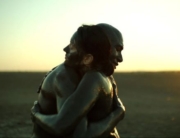
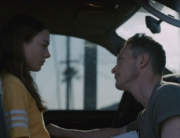
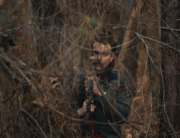
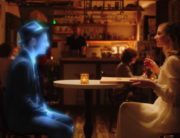
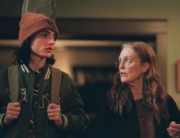
Leave A Comment